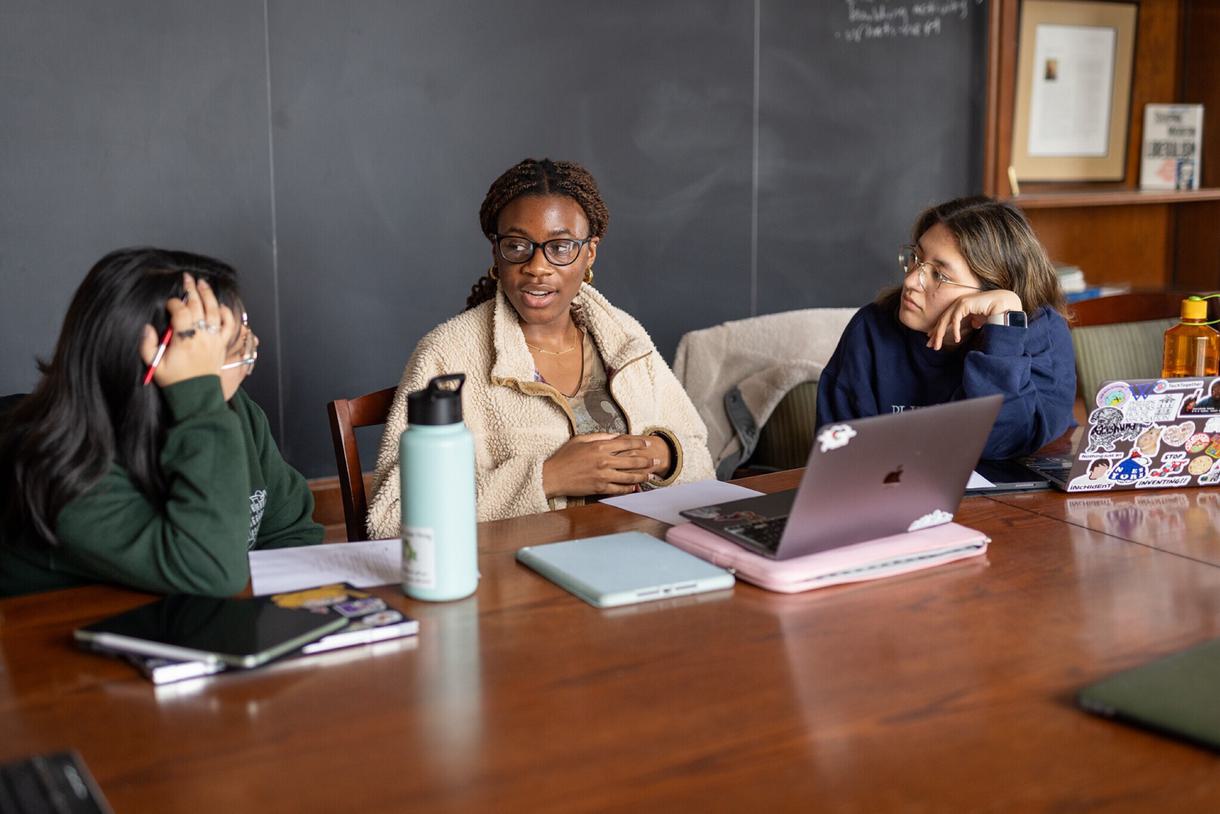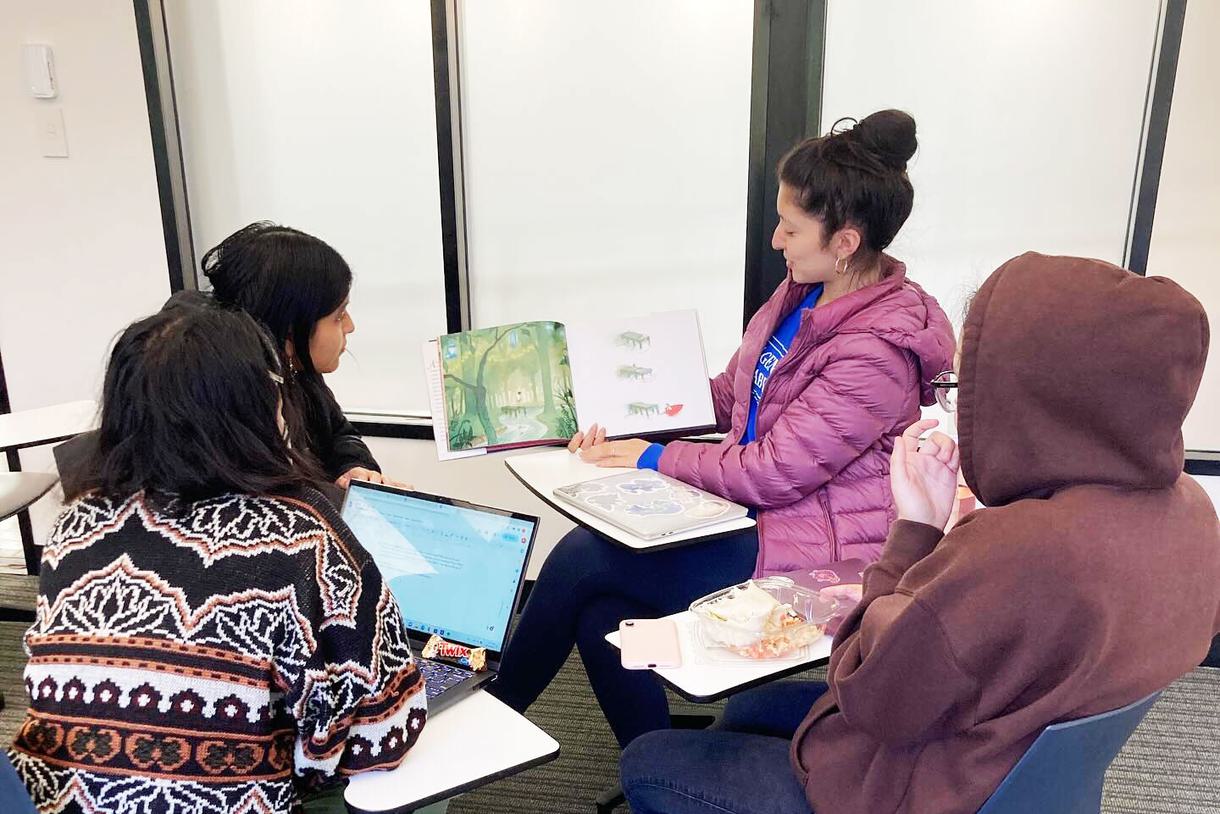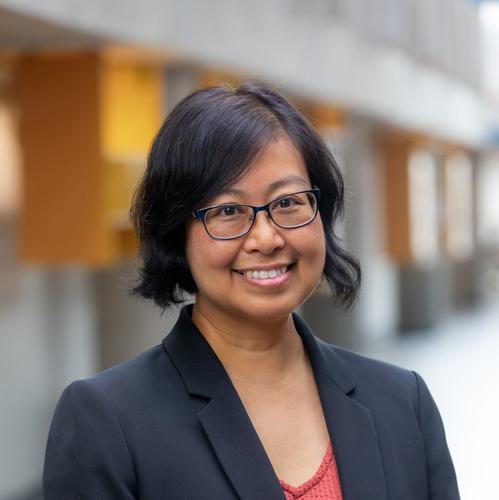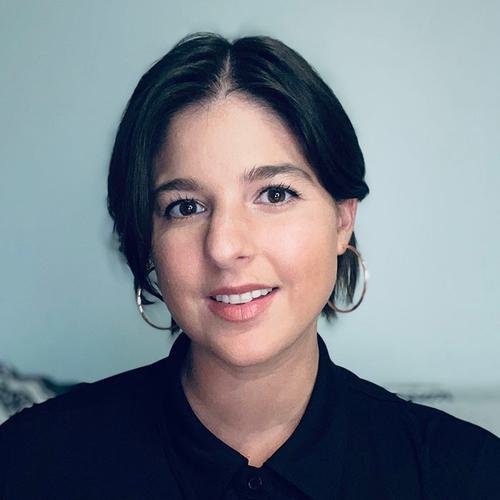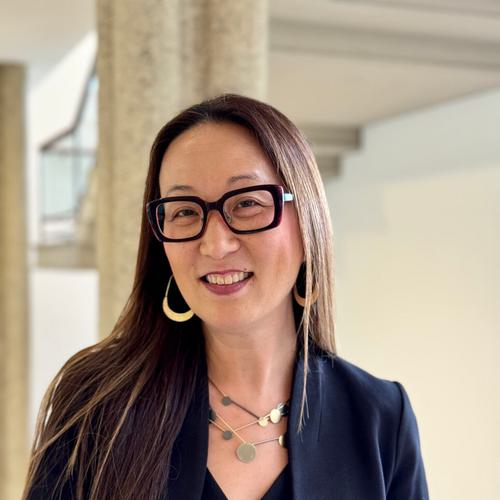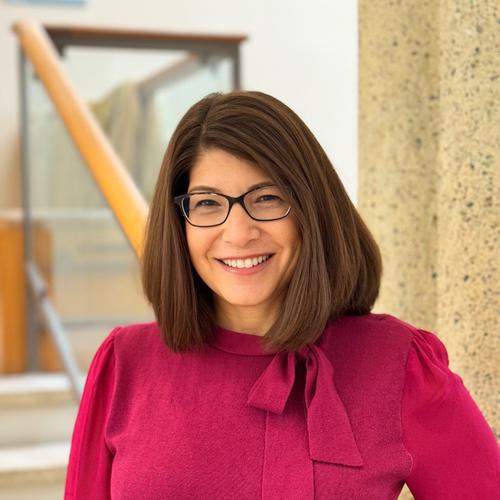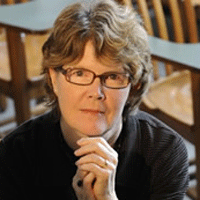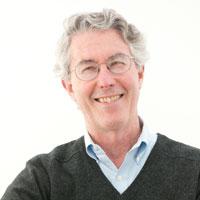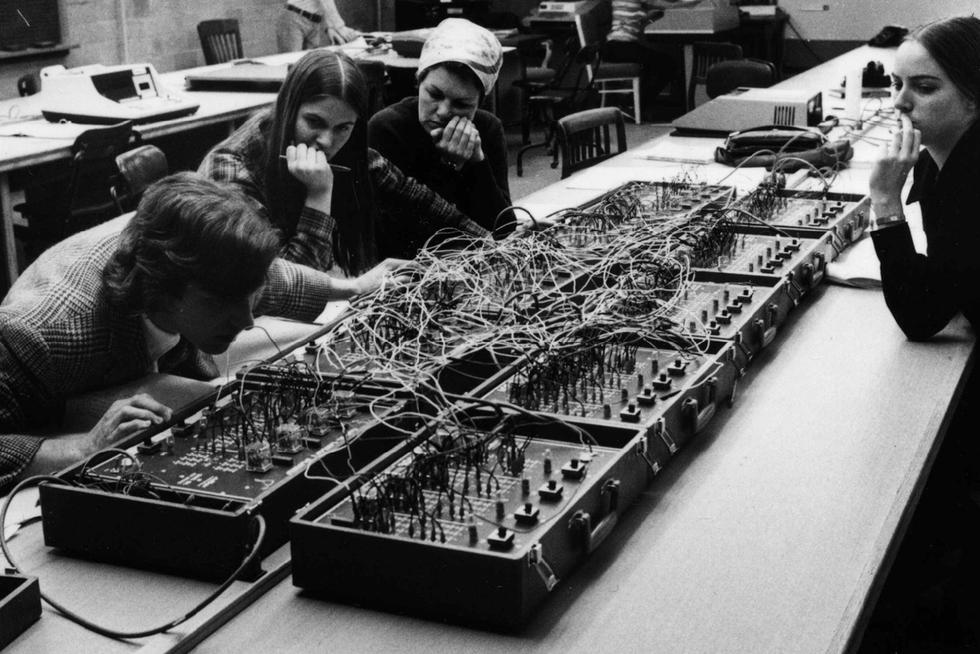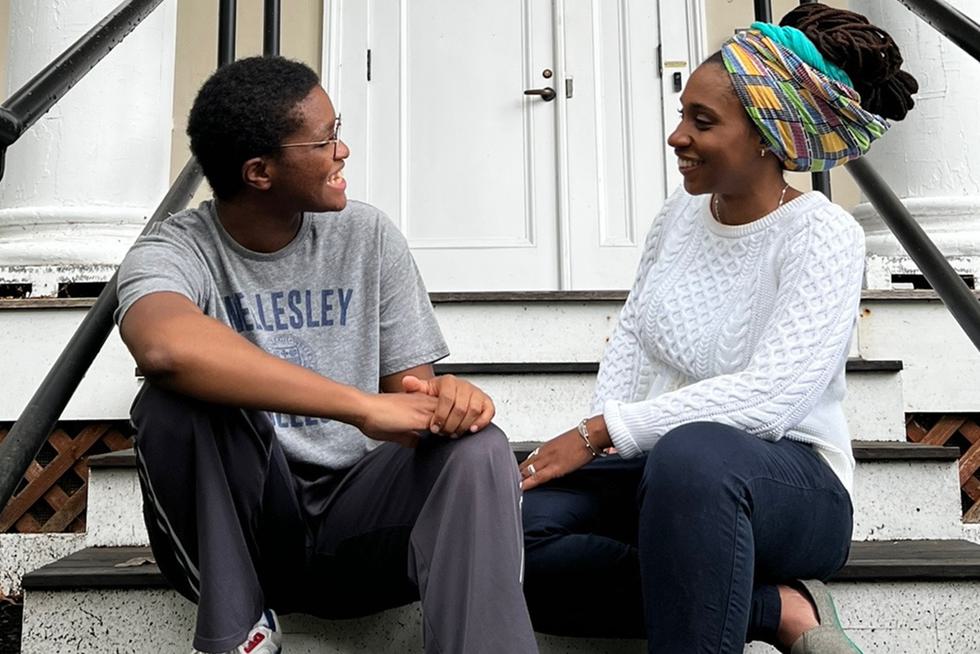Education
Academic Department Introduction
Education is an interdisciplinary field that employs historical, political, and sociocultural approaches to studying schools. Students can examine teaching and learning in classrooms while also exploring broader societal issues reflected in schools such as the impact of race and culture on students’ educational experiences, the consequences of high-stakes testing on student mental health, and programs that support multilingual learners. Our holistic and practical approach connects research, theory, and practice. We encourage students to blend classwork with hands-on experience in local schools and communities.
Students can declare a major in education studies or they may opt to declare one of our two minors: education studies or teaching and learning studies. Whether working in K–12 schools, higher education, children’s publishing, AI innovations, or education policy, our graduates apply their understanding of education research, policy, and practice to a wide range of professional pursuits.
Learning goals
Explore the various educational settings where teaching and learning occurs.
Examine the purposes and goals of schooling and the ways in which educational institutions have been shaped by the larger society.
Study how class, race, immigration, and the evolution of communities have influenced educational policies and practices.
Apply learning in school classrooms and other communities, where educational problems and change efforts can be observed in their full contexts.
Programs of Study
Education major
Students make connections between theory, policy, and practice through the education studies major, an interdisciplinary exploration of education, schools, and society.
Education minors
The education studies minor allows students to explore the connections between education, schools, and society. The teaching and learning studies minor allows students an opportunity to learn about the multidimensional aspects of teaching, learning, and innovation in the classroom.
Research highlights
-
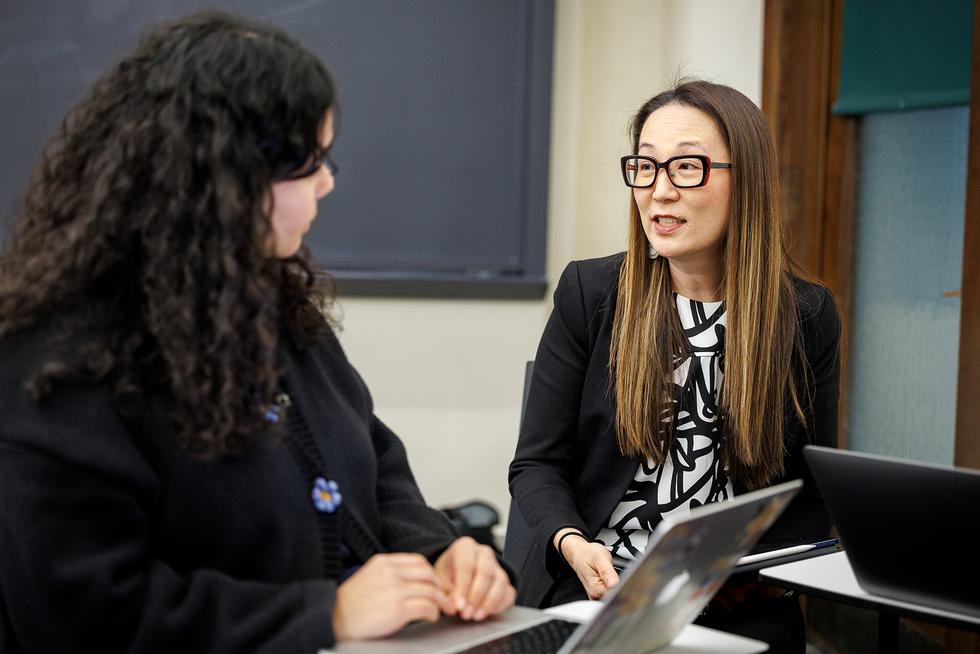
Professor Soo Hong and research assistants Haeli W. Warren ’21, Mona H. Baloch ’21, and Katharine H. Conklin ’22 co-authored “Teacher-Family Solidarity as Culturally Sustaining Pedagogy and Practice” (Urban Education, Oct. 2022). The paper examined equitable family-school partnerships in urban schools. The authors argue that the concept of “family engagement” should be recast as teacher-family solidarity and become an indispensable part of culturally sustaining pedagogy and practice.
-
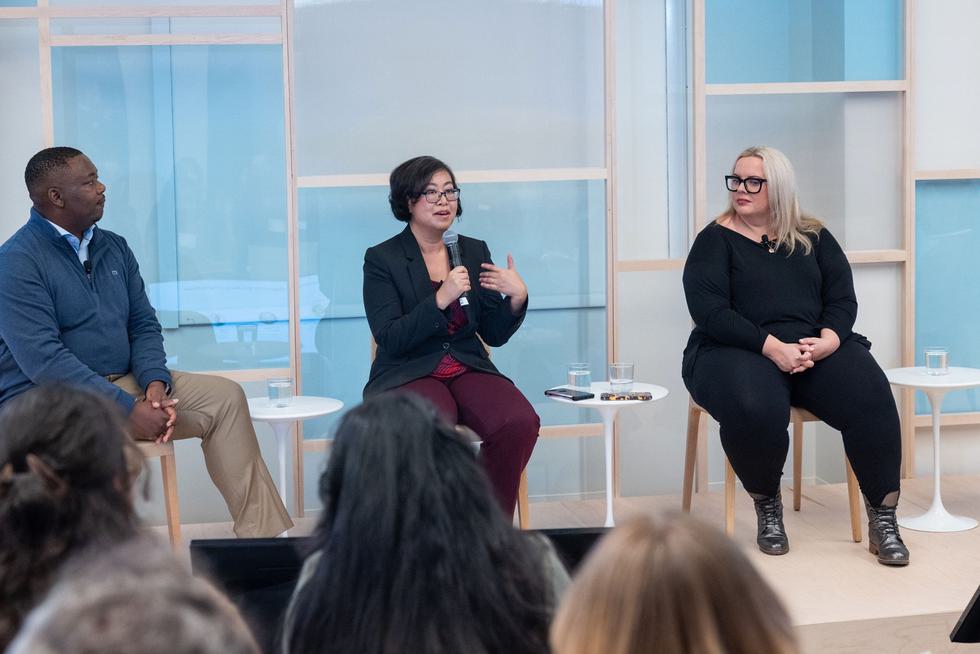
Lecturer Linda Charmaraman is the founder and director of the Youth, Media, & Wellbeing Research Lab at the Wellesley Centers for Women, where she is also a senior research scientist. A key goal of the lab is to involve undergraduate students in the research process. Students make significant contributions to social and behavioral research and present work at campus-based, regional, and national conferences, thanks to funding from the National Institutes of Health and Wellesley College internship program.
-
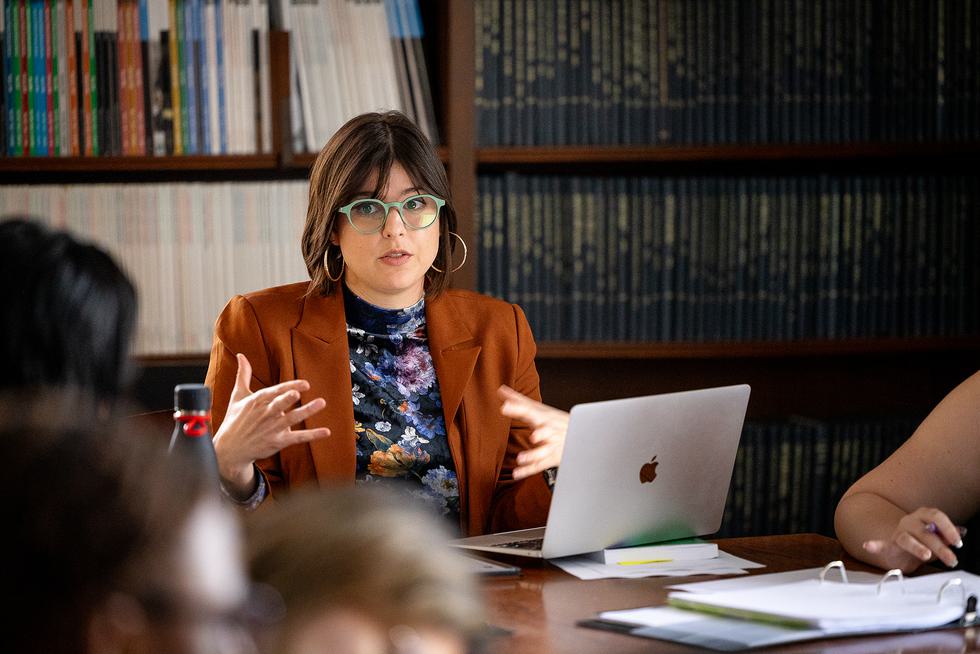
Professor Pamela D’Andrea Martínez recently led the publication of an article, “Becoming Culturally Responsive: Equitable and Inequitable Translations of CRE Theory into Teaching Practice” (The Urban Review, May 2023), based on research conducted at seven New York City schools. The article questions what it means to implement culturally responsive education and urges schools and educators to meaningfully grapple with the issues of power they seek to address by engaging anti-racist pedagogies.
Opportunities
-
Internships
Through partnerships with organizations, such as the NYU Metropolitan Center for Research on Equity and the Transformation of Schools, we have created summer internships that focus on educational policy and practice. The Ravitch Public Education Internships enable students to work in educational research and policy with the Boston Public Schools’ Office of the Superintendent.
-
Community-based learning
Students have numerous opportunities to apply what they learn in local schools, community agencies, and youth programs. In the seminar EDUC 335: Urban Education and Emancipatory Research, students complement their on-campus learning with field experiences in Boston and Cambridge classrooms and youth agencies, enacting action-based research projects with community partners. Numerous education courses incorporate experiences in schools and classrooms or invite local teachers, students, and community members to share their experiences in our classes.
-
Immersive experiences in urban schools
During Wintersession, we offer interested students the opportunity to gain classroom experiences in urban schools. Through a two-week Wintersession fellowship, students can be immersed full-time in Boston classrooms, learning alongside experienced teachers
-
Senior symposium
Education majors in their senior year can take an advanced research methods seminar in which they work on independent research projects and engage with a supportive, collaborative research community. At the end of the year, they present their research in a senior symposium that is open to the Wellesley community.
-
Research fellowships
Students have numerous opportunities to work with faculty on research projects during the academic year.
Beyond Wellesley
Beyond Wellesley
Many of our graduates work in K–12 education. They also work in higher education, nonprofits, publishing, and software/internet industries. They are teachers, professors, administrators, researchers, and policymakers who work to transform education. Recent employers include Johnson & Johnson, Bloomberg, Neighborhood School, and Bright Horizons.
Recent Employers






106 Central Street
Wellesley, MA 02481
